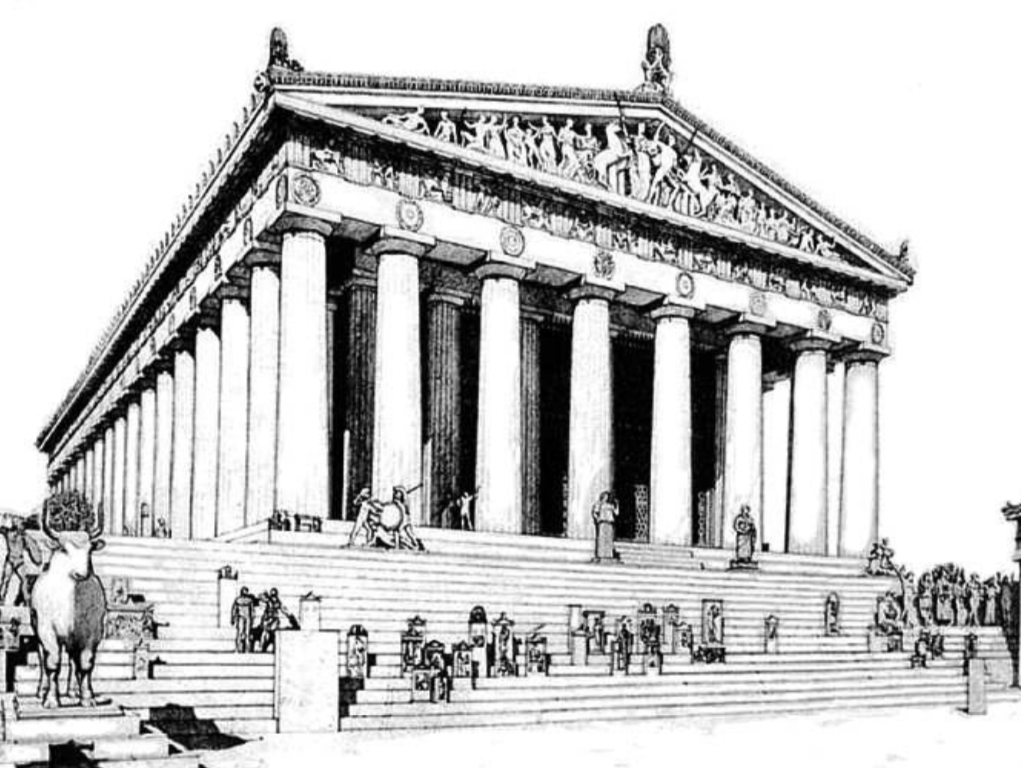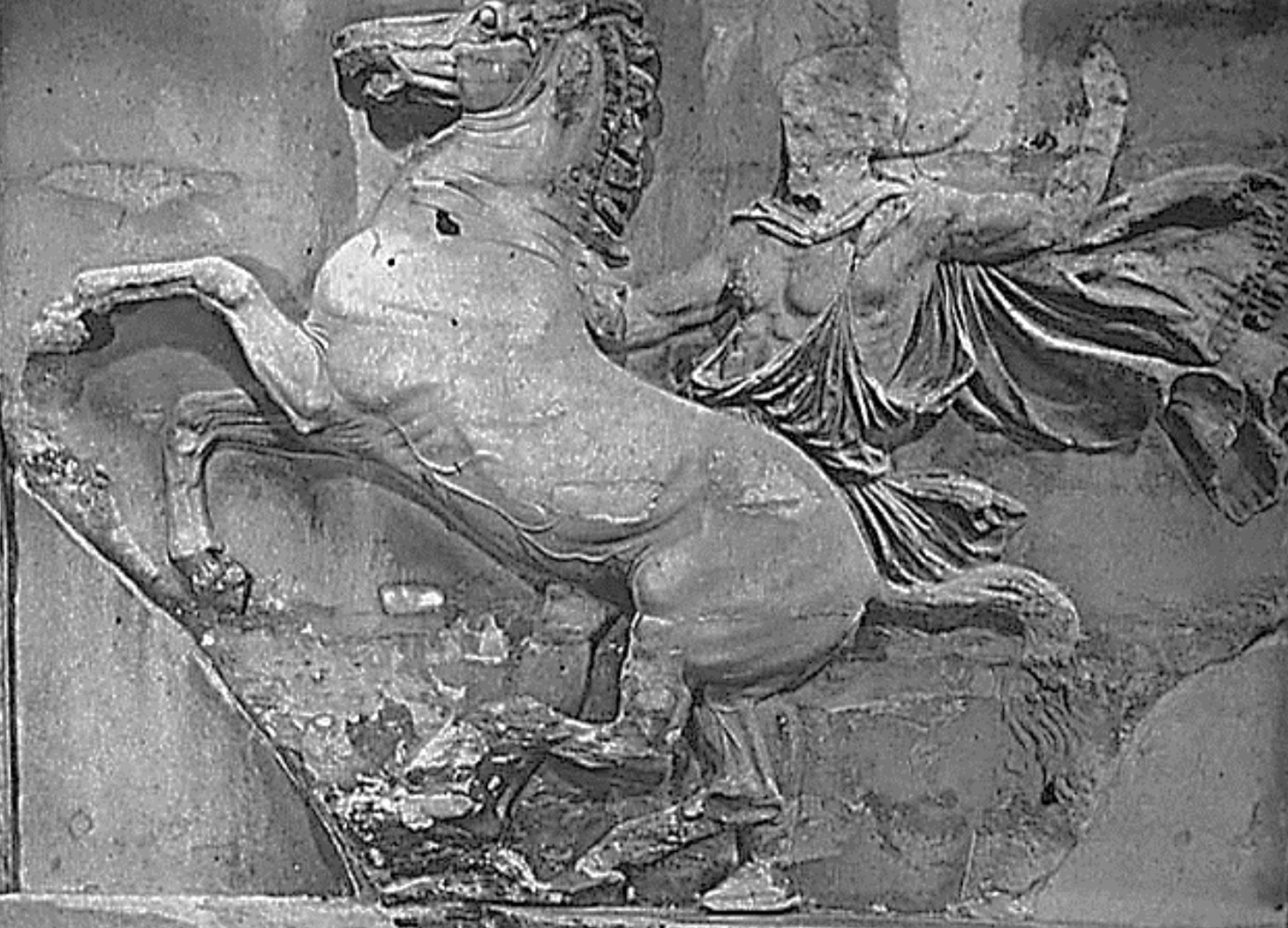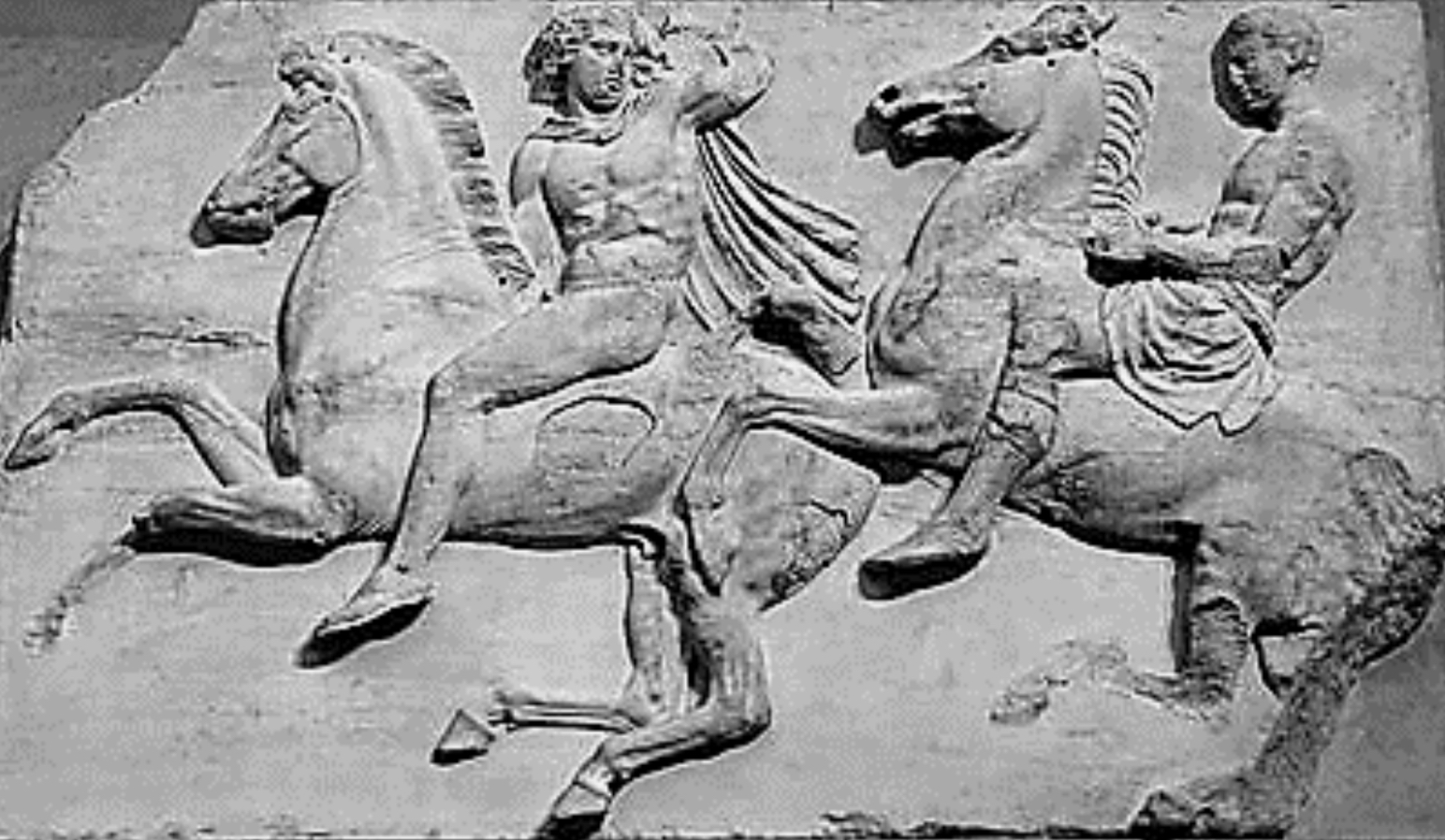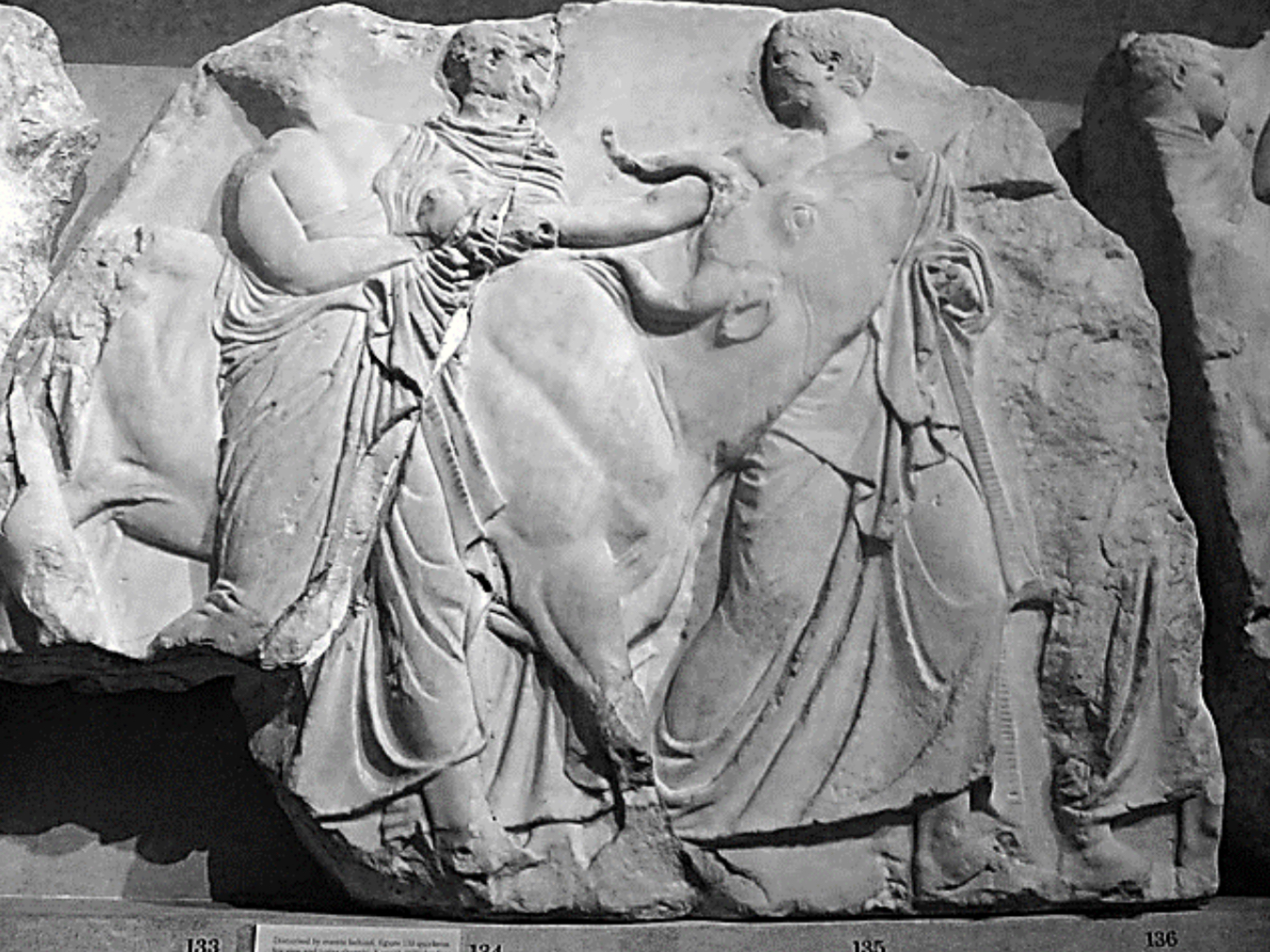The Parthenon Frieze
1/15
Earn XP
Description and Tags
Name | Mastery | Learn | Test | Matching | Spaced | Call with Kai |
|---|
No study sessions yet.
16 Terms
When is the Parthenon frieze dated to?
C.442-438 BC, High Classical
Why was the Parthenon built?
It was built as part of the re-building of the Athenian Acropolis which had been sacked by the Persians in 480/479 BC
Who funded the building of the Parthenon?
The treasury of the Delian League

Where is the Parthenon frieze located?
In the Parthenon on the Athenian Acropolis
What type of columns did this building display? How tall are they?
46 Doric columns which are 10.4m high
How many metopes are on the exterior frieze?
92 carved metopes on the exterior frieze
What cult statue is depicted in the Parthenon and what is it made from?
11.5m high chryselephantine statue of Athene Parthenos
How long and tall is the ionic frieze?
160m long and 1m high
What material is the Ionic frieze made from in what relief?
Pentelic marble slabs in light relief
What scene is depicted on the ionic frieze?
The Panathenaic procession with the seated Olympic gods looking on

How is movement and detail created in this part of the frieze? (4 points)
Billowing himation with motion lines
Profile legs of the rider with a ¾ torso → display of techne and movement
Veins protruding from horse belly conveys naturalism
Multiple planes
Display of arête

How is detail created in this part of the frieze?
Billowing himation with motion lines
Naturalistic twist in turned rider
Transparency in the riders drapery
Multiple planes in horses legs created distance

How is detail created in this part of the frieze?
Movement displayed by the man and the ox e.g. rearing head of the cow, flexed legs and horns
Transparency in the drapery
Multiple planes
Which seated gods are depicted here from left to right? How is detail created?
Poseidon, Apollo, Artemis
Modellling lines on the drapery of Artemis and Apollo create a swirl of curvilinear drapery and display naturalism
Apollo displays anthropomorphism with his swinging legs characterising him
Catenary shapes in the folds of Apollos drapery on his arms
Naturalistic twist in Apollos neck
Multiple planes displayed on the drapery of the gods
Repeated horizontal seats display order and unity contrasting the humans
What does Woodford say about the Parthenon?
‘The sculptural decoration of the Parthenon was exceptionally lavish’
What does Nigel Spivey say about the Parthenon?
It ‘symbolises democracy’